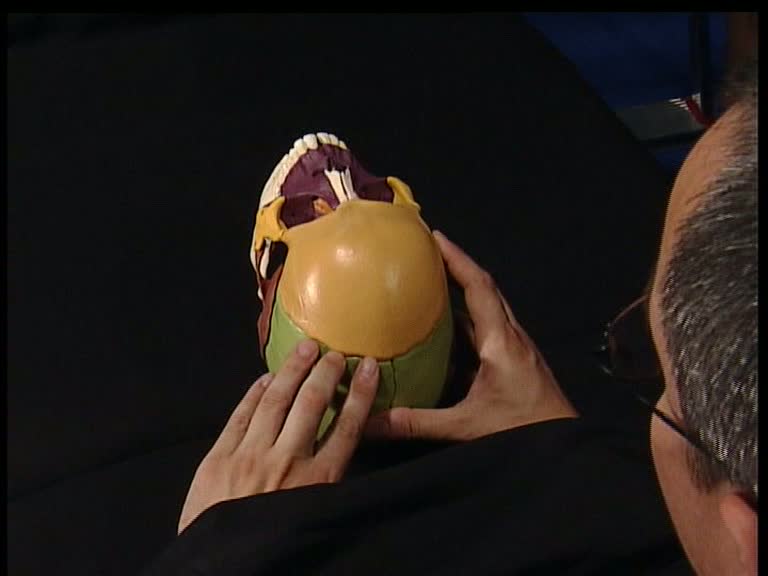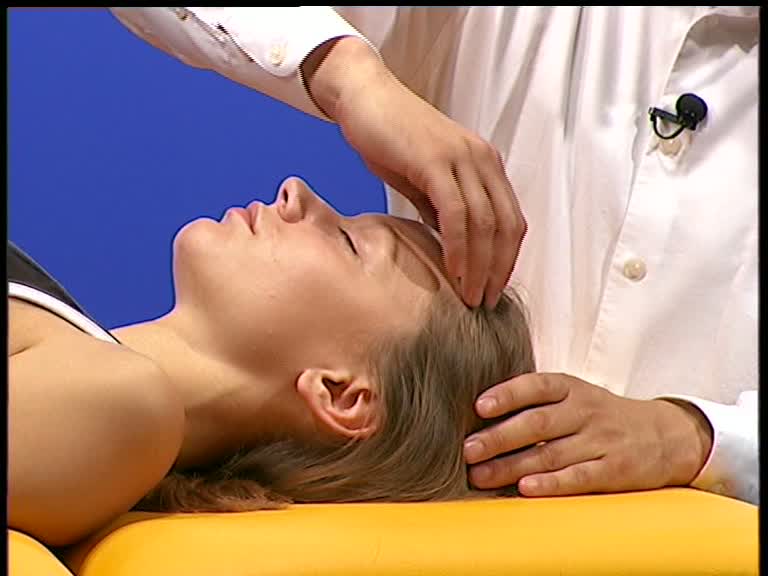In the middle of the coronal suture is a little indentation, Bregma
5. Palpation of the sutures:
 Do not use your fingertips for palpation, but the front part of the finger that is placed on the tissue, giving you a greater area of perception. The sutures can be perceived as a fine furrow (groove), or sometimes (less often) as a protrusion. Some sutures are covered by soft tissue and can therefore hardly be felt.
Do not use your fingertips for palpation, but the front part of the finger that is placed on the tissue, giving you a greater area of perception. The sutures can be perceived as a fine furrow (groove), or sometimes (less often) as a protrusion. Some sutures are covered by soft tissue and can therefore hardly be felt.
- coronal suture: Palpate with both fingers from the forehead posterior until you perceive a fine furrow (groove, channel) or less often a protrusion. You follow this from medial to lateral until about 2 finger’s width posterior of the lateral edge of the eye.
- In the middle of the coronal suture is a little indentation, Bregma.
 Bregma is about the same distance from the hairline as the hairline is from the eyebrow.
Bregma is about the same distance from the hairline as the hairline is from the eyebrow.
- From Bregma you palpate posteriorly along the sagittal suture.
- At the end of the sagittal suture you palpate an indentation at the back of the skull: Lamda.
- About to finger’s width posterior to Bregma, on the sagittal suture lies vertex, the highest point of the skull.
- Now palpate Asterion, the joining point of the occipital bone, the parietal bone and the temporal bone, which is located about 2 finger’s width behind and 1 to 2 finger’s width above the ear’s hole (concha). Asterion is a fairly mobile zone, compared to Pterion.
- The connecting line between Asterion and Lambda is the lamdoid suture
- Palpate the occipito-mastoid suture caudally from Asterion along the posterior ridge of the mastoid portion.








